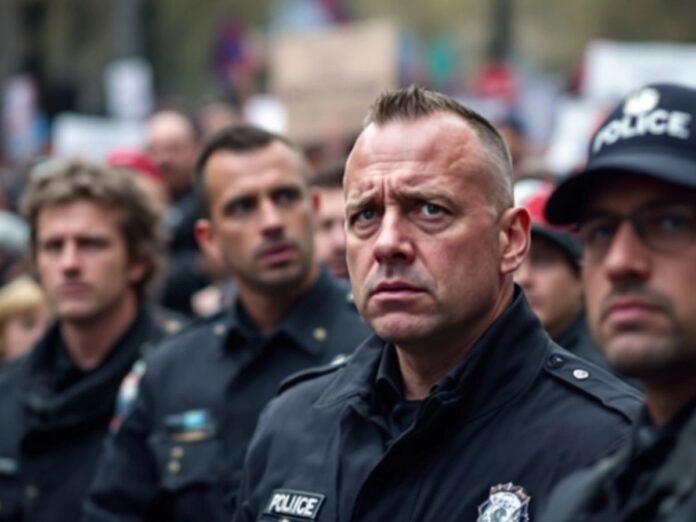Portugal is currently grappling with the fallout from the police shooting of Odair Moniz, a 43-year-old chef from Cape Verde. The incident has ignited widespread protests and a criminal complaint against far-right leader André Ventura, who made controversial statements regarding the shooting.
Key Takeaways
- André Ventura, leader of the Chega party, faces backlash for comments supporting police actions.
- A criminal complaint has been filed against Ventura and other party members.
- Protests against police violence have erupted across Portugal.
Background of the Incident
The tragic death of Odair Moniz has sent shockwaves through Portugal. Initially, police reported that Moniz had fled, crashed his car, and brandished a knife before an officer opened fire. However, subsequent investigations revealed that no knife was involved, leading to the officer being charged with manslaughter.
The shooting has sparked unrest in several municipalities around Lisbon, resulting in the torching of over a dozen vehicles and the arrest of 16 individuals, with seven others injured.
Ventura’s Controversial Remarks
In the wake of the shooting, André Ventura quickly took to social media to express his support for the police. He stated that the officer involved should be “decorated, not indicted,” a sentiment echoed by other members of his party. Another Chega lawmaker suggested that if security forces were more aggressive, the country would experience greater order.
These comments have drawn sharp criticism from various sectors of society. Miguel Prata Roque, a constitutional law professor, condemned Ventura’s statements as attempts to incite violence and hatred against citizens. He, along with others, filed a criminal complaint against Ventura for spreading “false or biased news likely to cause alarm or unrest among the population.”
Public Response and Protests
The public’s reaction has been swift and overwhelming. A petition to support the criminal complaint has garnered over 125,000 signatures in just a few days, reflecting widespread outrage against Ventura’s remarks. Francisca Van Dunem, a former justice minister, stated that a limit has been reached and that no democrat could remain indifferent to such statements.
On Saturday, thousands gathered in Lisbon to protest against police violence, carrying signs that read “Stop killing us” and “Who to call when the killer is police?” The protest was significant enough to require a change in route to avoid clashes with Chega supporters who held a counter-rally in support of the police.
Ongoing Investigations
The Portuguese public prosecutor has confirmed that an investigation is underway regarding the comments made by Ventura and other Chega members. While details remain sparse, the investigation underscores the seriousness of the situation and the potential legal ramifications for those involved.
Conclusion
As Portugal navigates this complex and sensitive issue, the interplay between political rhetoric, public sentiment, and law enforcement practices remains a focal point of national discourse. The events surrounding Odair Moniz’s death and the subsequent reactions from political leaders like André Ventura highlight the urgent need for dialogue and reform in addressing police violence and community relations in Portugal.

